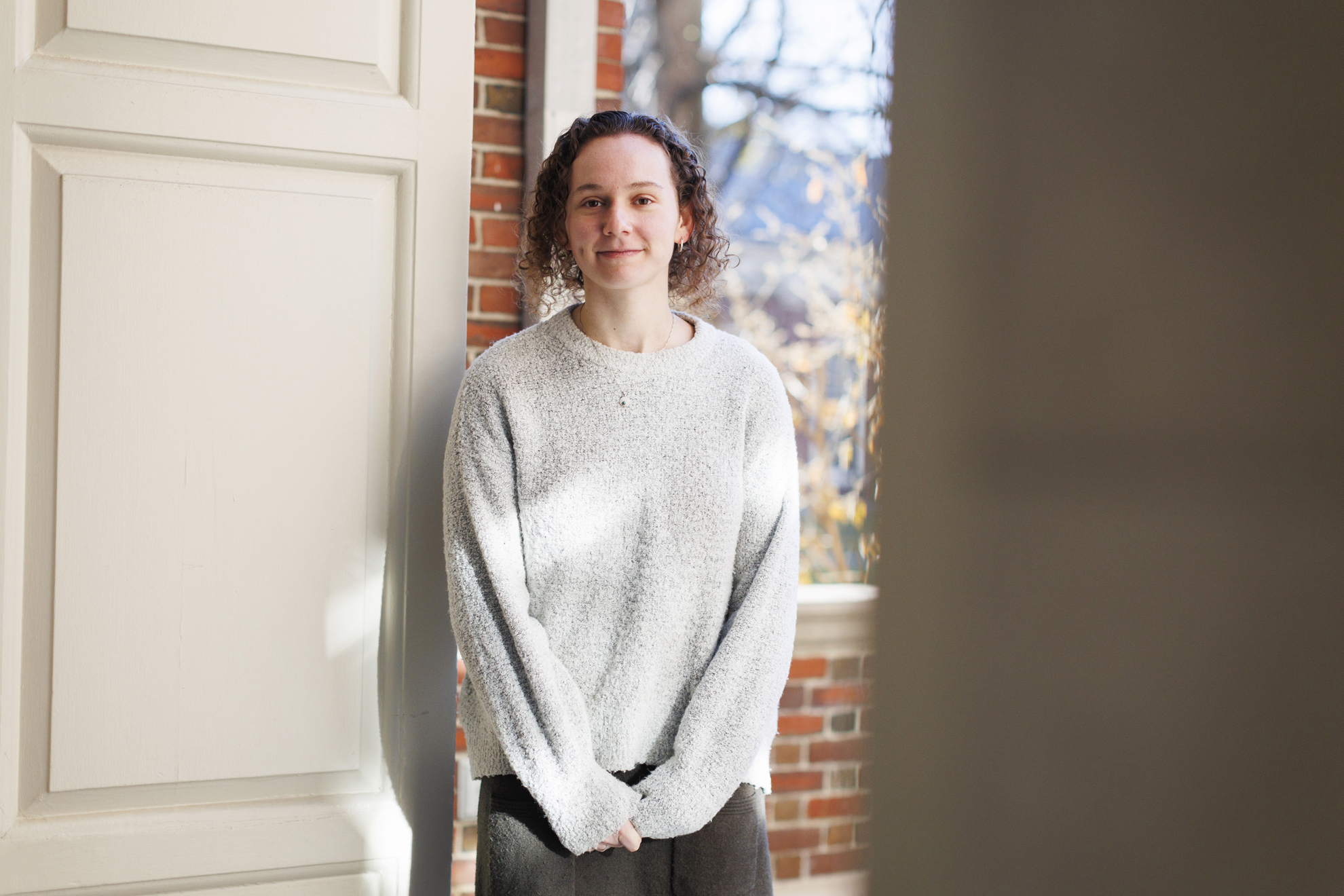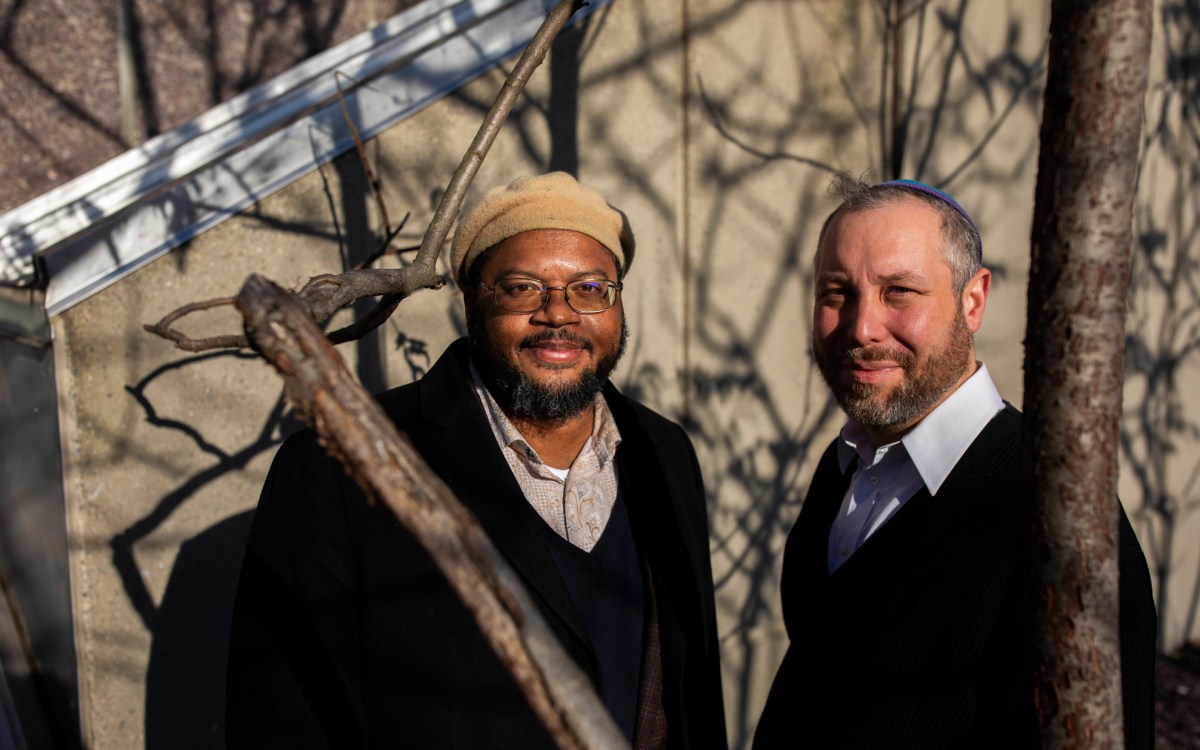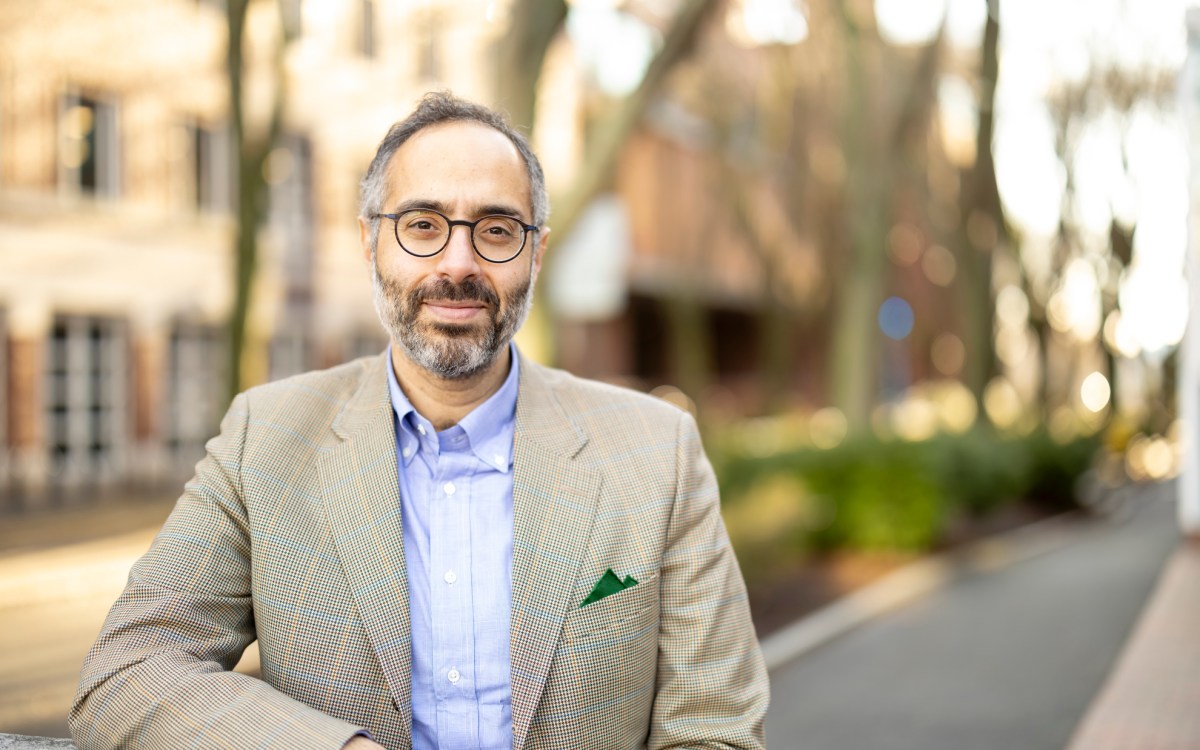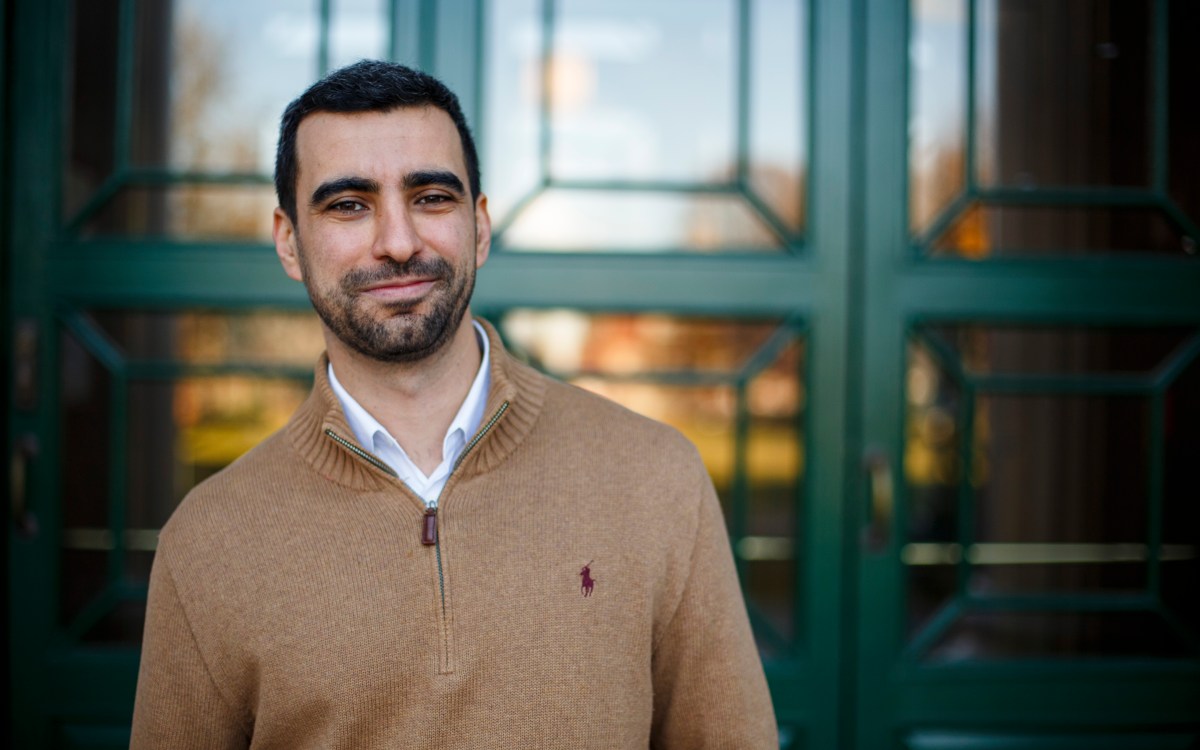
Stephanie Mitchell/Harvard Staff Photographer
Conflict is inevitable. Rancor isn’t.
‘Disagree curiously,’ says undergrad nonprofit founder. And she’s not alone.
Part of a series of profiles focused on community-led efforts to promote dialogue across campus.
Shira Hoffer’s vocation is rooted in the family meetings her parents led at their New Hampshire home to deal with conflicts or hard topics. The four would sit on the couch around a bowl filled with M&Ms, which would slowly disappear as they talked.
“I’m predisposed, you could say, to be invested in conflict resolution,” said Hoffer, a senior concentrating on social studies and religion. “Both my parents modeled for us how to give weight to different perspectives and exploring pros and cons and not writing things off immediately.”
Hoffer leaned on those experiences when she launched the Hotline for Israel/Palestine shortly after the Oct. 7, 2023, terror attacks to foster productive dialogue on campus about the war in Israel and Gaza. Her goal was to provide accurate, unbiased answers to questions about the conflict and its long history to help those who had little or no background and might otherwise get information from less-reliable sources.
“Some people told me, ‘You’re platforming the enemy,’ and others would say, ‘You’re supporting genocide,’” said Hoffer of the response to her project. “People had a lot of questions, and we need to nurture those questions, lest people become more close-minded.”
Over the last year, the hotline’s 20 volunteers have answered more than 300 questions, but along the way, Hoffer realized more work was needed.
Last spring, she founded the nonprofit Institute for Multipartisan Education to offer consulting to middle and high schools about how to advance civil discourse and constructive disagreement. A one-year fellowship for college students to do the same on their own campuses will start next fall.
“Humanizing, understanding, and bridge-building are not possible without a degree of curiosity.”
Hoffer’s goal is to help bring about a wider cultural shift that embraces dialogue across differences. It begins with helping students discover how to listen to views different from their own without shunning or canceling those on the other side. The way to do that, she said, is by nurturing curiosity and open-mindedness.
“We’re saying, ‘Disagree, but disagree curiously,’ and see what happens,” said Hoffer. “We want to help students learn the skills to approach difference with curiosity. Humanizing, understanding, and bridge-building are not possible without a degree of curiosity.”
It’s necessary work because people are not often taught how to talk about the most difficult topics, said David Seibel, associate faculty at Harvard Law School’s program on negotiation. An expert in mediation and dispute resolution, Seibel serves on the advisory board of Hoffer’s nonprofit.
“We don’t have a strong platform or foundation or habit for constructive dialogue,” said Seibel, who met Hoffer when she attended a mediation program at the Law School. “Shira’s organization is important because it is a platform for students to focus on how to create meaningful communication in a time when there’s so little of that.”
After graduation, Hoffer plans to devote herself to her nonprofit. In a way, it’s not far from what she expected to do after high school — something between the law and religion.
Attending a pluralistic Jewish high school in Waltham, Massachusetts, where students of Orthodox, conservative, reform, and other denominations of Judaism study together, allowed her to see the benefits of learning about her schoolmates’ differences and building community together, she said.
During her years at Harvard, Hoffer joined the Harvard Interfaith Forum and the Harvard Intellectual Vitality group and took part in several dialogue and conflict-resolution programs. Although she worries about the administrative and fundraising challenges facing nonprofits and startups, Hoffer underscores the importance of her mission of “spreading curiosity across education.”
Even before the Israel-Hamas war, U.S. society was experiencing heightened polarization over issues such as LGBTQ rights, abortion, and immigration. It’s critical to learn how to have conversations across divides for the sake of democracy, said Hoffer.
“Polarization and an unwillingness to understand each other create problems at all levels of society,” she said. “It creates academic problems when in the classroom, people are unwilling to entertain different perspectives on historical or current events. It creates social problems when we become siloed into communities based on our perspectives, and it creates problems for democracy when we’re unable to engage in a conversation with the other side.”
More like this
-

Key to healing riven communities? Getting people together.
Campus rabbi, imam work to ease pain in their groups caused by Israel-Hamas war, model power of personal ties
-

Stepping into the hot center
Tarek Masoud’s ‘Middle East Dialogues’ sparked many conversations — including about importance of having them
-

Sense of isolation, loss amid Gaza war sparks quest to make all feel welcome
Nim Ravid works to end polarization on campus, across multicultural democracies




